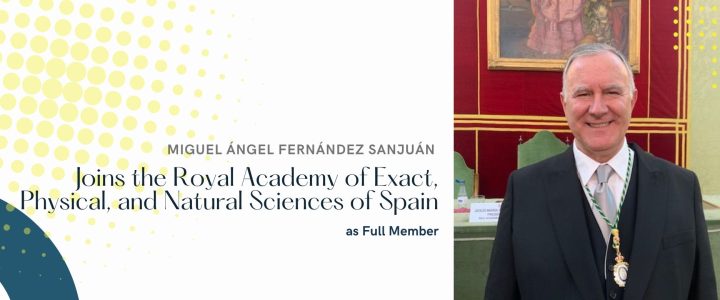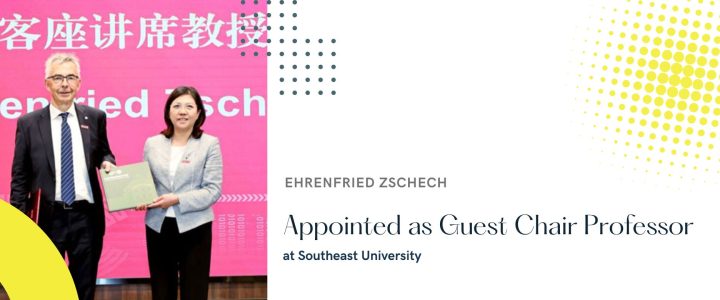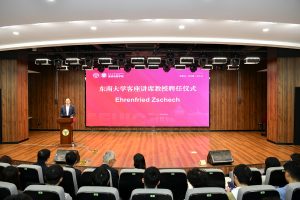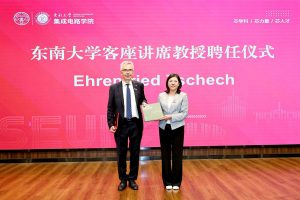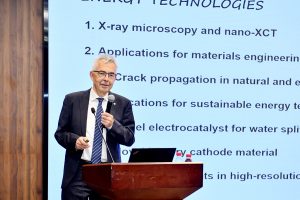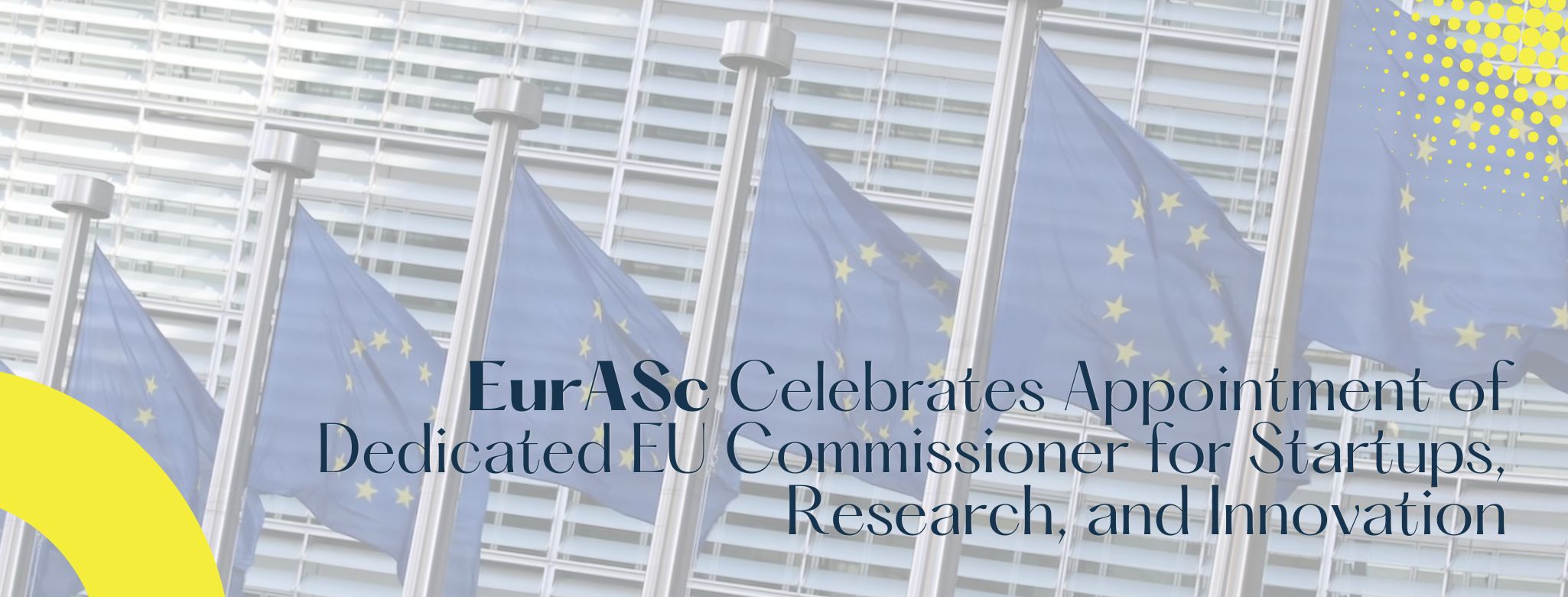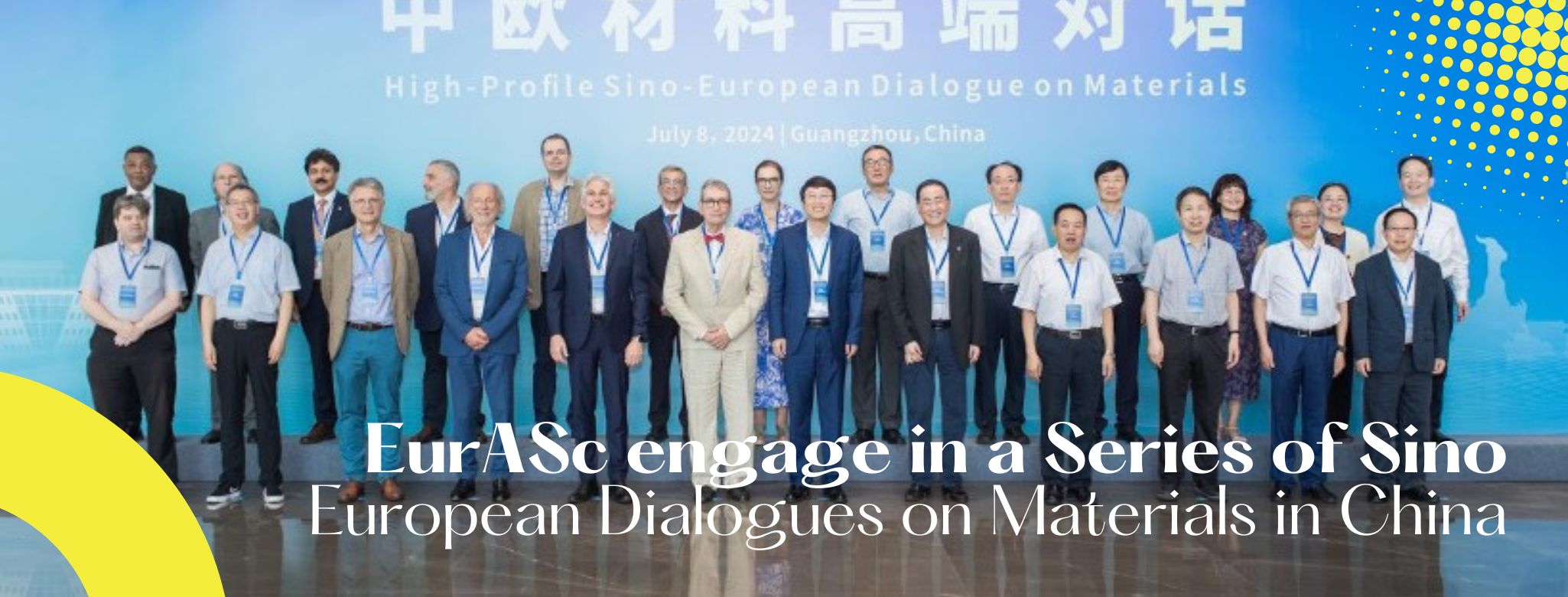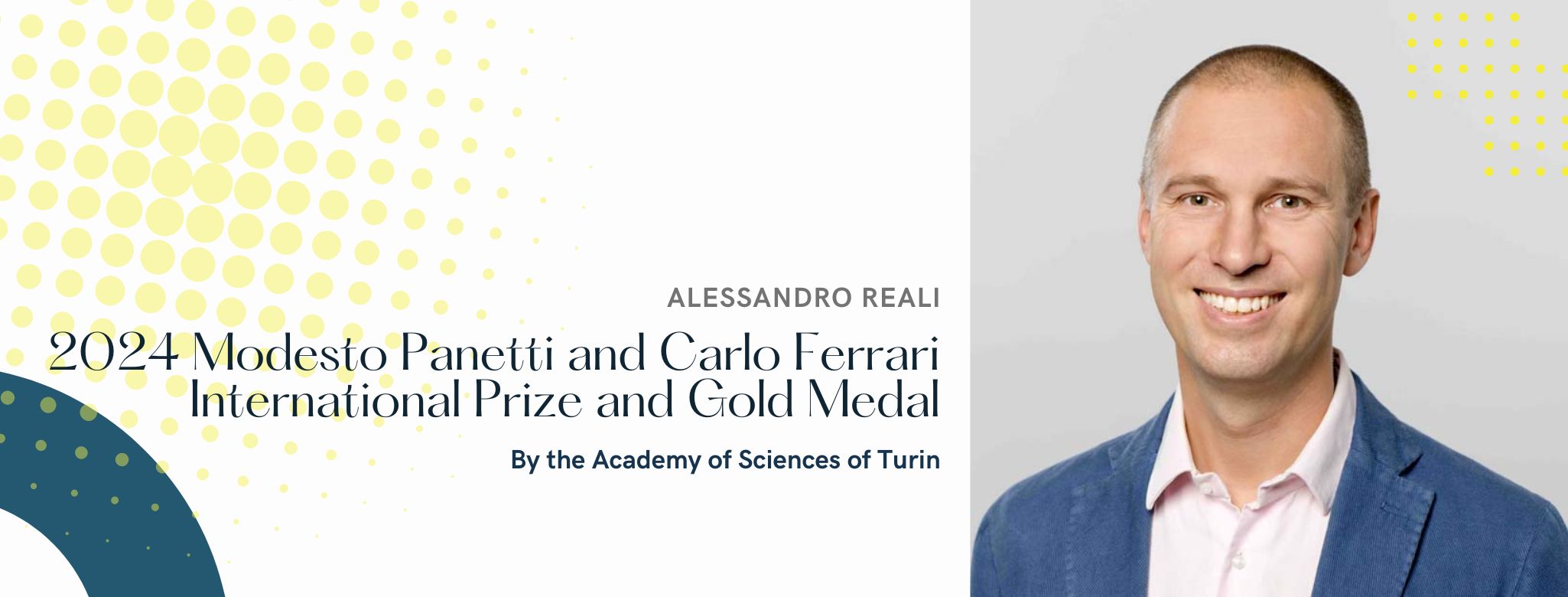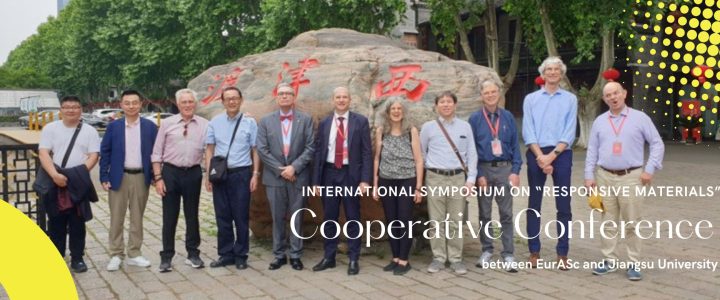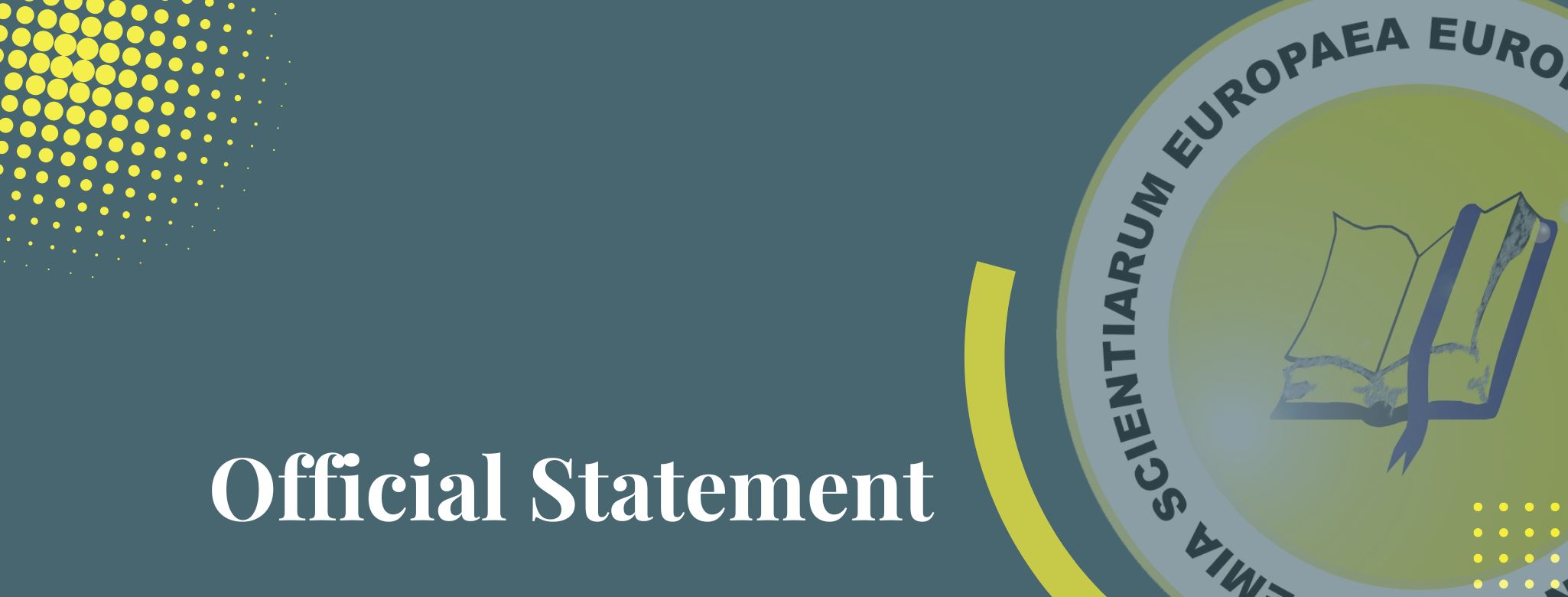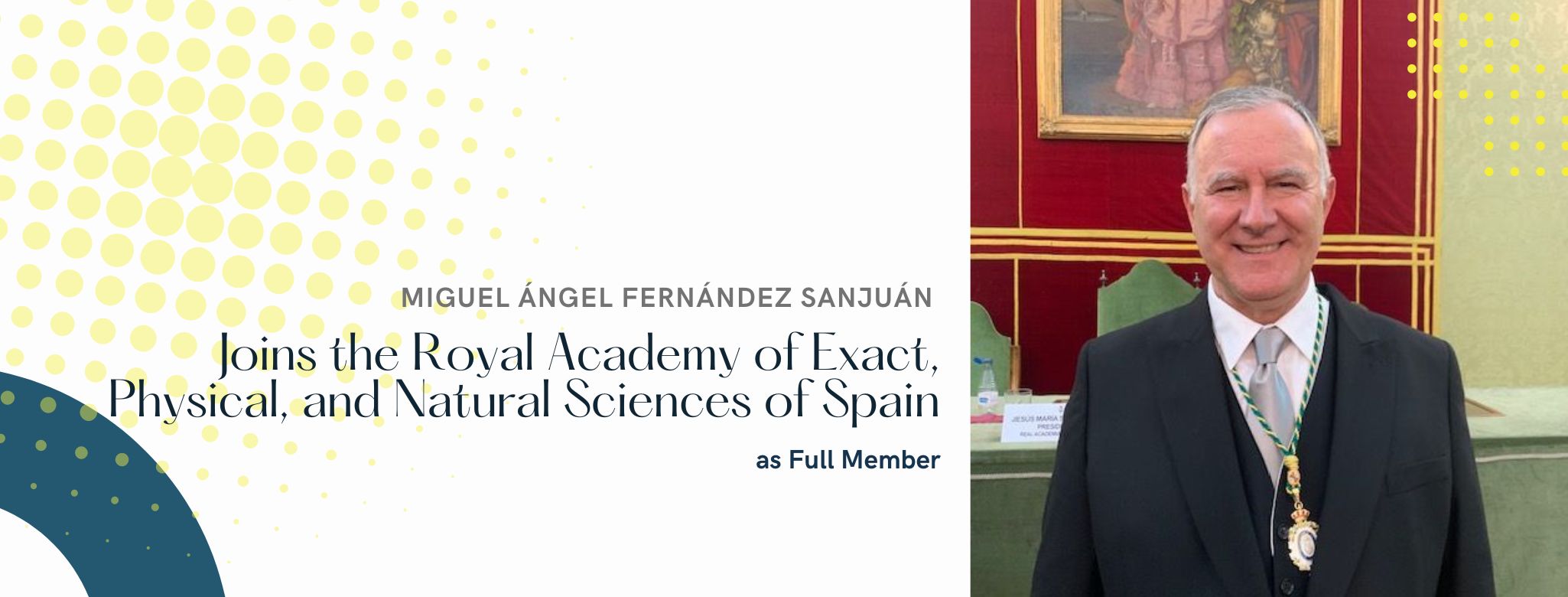
On June 27, 2024, Professor Miguel Ángel Fernández Sanjuán was officially inducted as a full member of the Royal Academy of Exact, Physical, and Natural Sciences of Spain. The ceremony, held in Madrid, was attended by many of his colleagues and supporters, who celebrated this milestone in his career. Fernández Sanjuán expressed his gratitude to the Academy, remarking on the honor of joining an institution that has upheld the highest standards of scientific excellence for more than two centuries.
In his speech, he thanked academicians Juan María Marcaide Osoro, Miguel Ángel Alario Franco, and Manuel Aguilar Benítez de Lugo for nominating him to occupy the newly created Medal 60 in the Physical and Chemical Sciences Section. Reflecting on his initial selection as a Corresponding Member in 2015, he shared his commitment to advancing the Academy’s mission. Fernández Sanjuán highlighted his contributions to international collaboration, including roles on the International Relations Commission and the planning committee for the annual General Conference, where he collaborates with over 200 researchers from 25 countries.
The new academician’s inaugural lecture, “Nonlinear Dynamics, Chaos, and Complexity: Interdisciplinarity in Science” delved into the profound influence of chaos theory and the butterfly effect on his scientific work. He concluded with a message of hope and optimism, stating, “I see a bright and promising future ahead, with challenges to overcome and many new opportunities to advance our understanding.”
This prestigious recognition marks a significant achievement in Fernández Sanjuán’s career and aligns with a historic moment for the Academy as it prepares for its first female president this fall. The European Academy of Sciences (EurASc) proudly congratulates Professor Fernández Sanjuán on this accomplishment and honors his dedication to advancing scientific knowledge. His commitment to interdisciplinary research embodies the values shared by EurASc and the Academy.
This text draws on information and images from official reports by the RAC, available on their website here, as well as from local news articles in León and Villaviciosa de Odón. Full details of these events can be read in* León Noticias) and Línea Verde Villaviciosa de Odón *A video of the ceremony can also be viewed on YouTube* [here]
Published on October 14, 2024.

